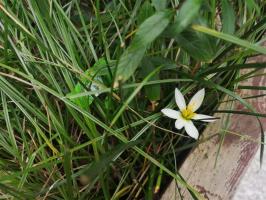Can You Plant Ebony Trees in the USA?
Ebony trees are prized for their beautiful black wood and have been used for centuries to make high-quality furniture, musical instruments, and decorative objects. However, the trees are native to tropical regions of Africa, Asia, and South America and are not commonly found in the United States. If you're wondering whether it's possible to plant ebony trees in the USA, the answer is yes - but with some important considerations.
Choosing the Right Location
The first thing to consider when planting ebony trees in the USA is location. Ebony trees require a warm, humid climate with average temperatures above 60°F (15°C) and at least 60 inches (152 cm) of rainfall per year. They also need acidic soil that is rich in organic matter and well-draining. If you live in a region with a temperate climate, such as the Northeast or Midwest, it may be difficult to create the ideal conditions for growing ebony trees. However, if you live in the Southern US or in a coastal area with a tropical climate, you may be able to grow ebony trees successfully.
Choosing the Right Variety
There are several different species of ebony trees, each with its own unique growth requirements and characteristics. If you're interested in planting ebony trees, it's important to choose a variety that is well-suited to your climate and soil conditions. Some of the most common ebony varieties include:
African ebony (Diospyros crassiflora): This species is native to West Africa and is prized for its pitch-black wood.
Macassar ebony (Diospyros celebica): This species is native to Indonesia and is known for its distinctive dark-brown and black striped wood.
Madagascar ebony (Diospyros perrieri): This species is native to Madagascar and is highly valued for its fine-grained black wood.
Planting and Caring for Ebony Trees
Once you've chosen the right location and variety of ebony tree, it's important to follow proper planting and care procedures to ensure the tree's success. Ebony trees should be planted in well-draining soil and provided with regular watering and fertilization. They may also benefit from occasional pruning to maintain a healthy shape and remove dead or damaged branches. Due to their slow growth rate, ebony trees may take several years to mature and produce usable wood. However, with proper care, they can be a valuable addition to any landscape or plantation.
The Legal and Ethical Considerations of Growing Ebony Trees
It's important to note that ebony trees are considered endangered in some parts of the world due to overharvesting and deforestation. As such, it's important to only source ebony tree seeds, seedlings, or saplings from reputable sources that practice sustainable and ethical harvesting practices. Additionally, depending on where you live, there may be legal restrictions on planting or harvesting ebony trees. In some cases, a permit or license may be required. Be sure to research and comply with all applicable laws and regulations before planting ebony trees.
The Benefits of Growing Ebony Trees
Growing ebony trees can offer several benefits beyond their aesthetic and commercial value. Ebony trees are highly resilient and can help protect soil and prevent erosion. They also provide valuable shade and habitat for wildlife. Additionally, growing ebony trees can be a rewarding experience for anyone interested in horticulture or forestry, and can help contribute to efforts to conserve endangered tree species.
Conclusion
While it may be challenging to grow ebony trees in the USA, it's still possible with proper location selection, variety choice, planting and care procedures. However, it's important to always consider the legal and ethical considerations of growing ebony trees, especially with regard to sustainability and responsible harvesting practices. Whether for aesthetic value or environmental benefit, growing ebony trees can be a highly rewarding experience for anyone interested in sustainable horticulture and forestry practices.

 how many times do yo...
how many times do yo... how many planted tre...
how many planted tre... how many pine trees ...
how many pine trees ... how many pecan trees...
how many pecan trees... how many plants comp...
how many plants comp... how many plants can ...
how many plants can ... how many plants and ...
how many plants and ... how many pepper plan...
how many pepper plan...































